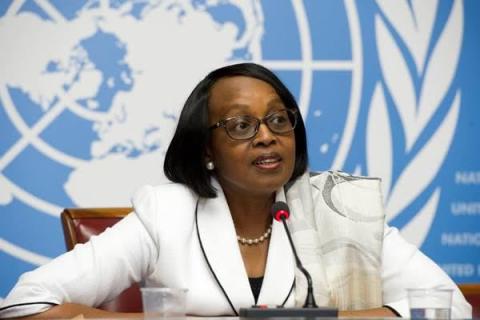
WHO states that the pandemic is accelerating as it took 98 days to reach 100,000 cases and only 19 days to move to 200,000 cases.
The World Health Organization has warned African countries not to relent in measures taken to combat coronavirus as confirmed cases on the continent cross 200,000.
More than 200 000 cases have been confirmed so far in Africa, with over 5,600 deaths.

WHO states that the pandemic is accelerating as it took 98 days to reach 100,000 cases and only 19 days to move to 200,000 cases.
According to WHO, 10 out of 54 countries are currently driving the rise in numbers, accounting for nearly 80% of all the cases.
It added that more than 70% of the deaths were taking place in only five countries: Algeria, Egypt, Nigeria, South Africa and Sudan.
South Africa is the most affected, accounting for 25% of the continent’s total cases, with the Western Cape and Eastern Cape provinces reporting a high number of cases and deaths daily.
“For now, Africa still only accounts for a small fraction of cases worldwide,” said Dr Matshidiso Moeti, World Health Organization (WHO) Regional Director for Africa. “But the pace of the spread is quickening. Swift and early action by African countries have helped to keep numbers low but constant vigilance is needed to stop COVID-19 from overwhelming health facilities.”
“Stay-at-home orders and closing of markets and businesses have taken a heavy toll, particularly on the most vulnerable and marginalized communities,” said Moeti.
“So, the need to balance between saving lives and protecting livelihoods is a key consideration in this response, particularly in Africa.”
WHO advised that easing restrictions should be a controlled process and needs to be coupled with ensuring that widespread testing capacities and mechanisms are in place.
“These steps need to be constantly adapted according to the trends in the data and maintained until the pandemic is contained or there is a vaccine or treatment for COVID-19 which is accessible to everyone.
“As countries ease restrictions, health authorities will need to ensure continuity of essential health care services while also resuming the full gamut of routine health services,” WHO said.